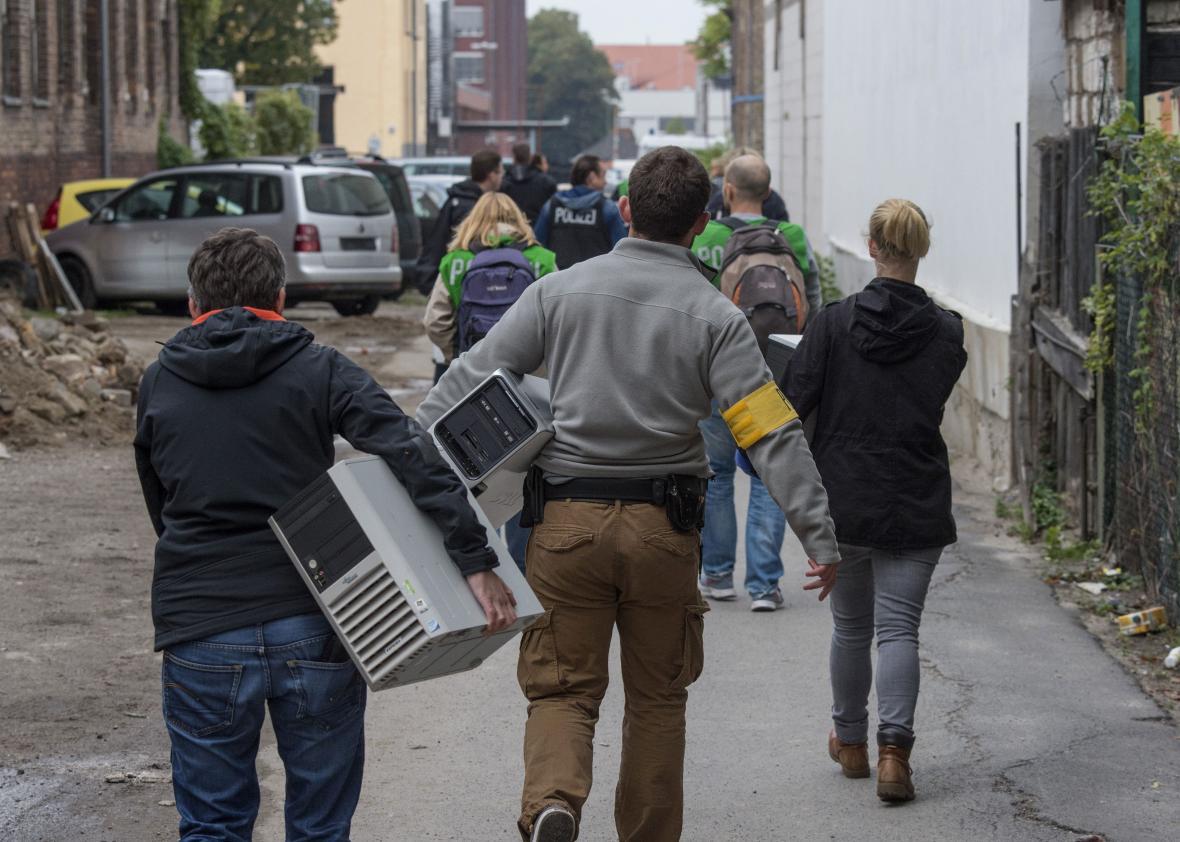Have you heard that the Islamic State is really good at digital communication? As concern about the extremist militant group grows in the United States, more and more public figures are talking about ISIS’s digital savvy. The group even has a “Jihadi Help Desk.” Terrorist tech support.
So what is the U.S. doing about it? Well, during a speech in South Carolina on Monday, Republican presidential hopeful Donald Trump outlined one idea.
We’re losing a lot of people because of the Internet. And we have to do something. We have to go see Bill Gates and a lot of different people that really understand what’s happening. We have to talk to them, maybe in certain areas, closing that Internet up in some way. Somebody will say, ‘Oh freedom of speech, freedom of speech.’ These are foolish people.
Fools, all. Rep. Joe Barton, Republican of Texas, shared an extremely similar idea in November during a House Energy and Commerce Committee hearing. “Isn’t there something we can do under existing law to shut those Internet sites down?” he asked, speaking about services ISIS uses to communicate. (Later Barton clarified that he was “in no way suggesting we shut down the Internet,” and specifically noted that he is “very mindful of privacy and First Amendment issues on the Internet.”)
Meanwhile, Democratic presidential front runner Hillary Clinton said in a speech Sunday that, “Resolve means depriving jihadists of virtual territory just as we work to deprive them of actual territory.” She added, “They are using websites, social media, chat rooms and other platforms to celebrate beheadings, recruit future terrorists, and call for attacks. We should work with host companies to shut them down … [and] to figure out how we disrupt them.”
At first it sort of seemed like Clinton was talking about how platforms should deal on a case-by-case basis with posts that are supportive of ISIS. But then Clinton had a weird moment of overlap with Trump. “You’re going to hear all of the usual complaints, you know, freedom of speech, et cetera. But if we truly are in a war against terrorism and we are truly looking for ways to shut off their funding, shut off the flow of foreign fighters, then we’ve got to shut off their means of communicating.”
Sure, freedom of speech, et cetera. But can we really cut ‘em off? It would be more complicated than everyone is making it sound.
First of all, ISIS doesn’t have one clubhouse for all group business. There are certainly strongholds in a number of Iraqi and Syrian cities like Mosul and Deir-al-Zor, and it might be possible to coordinate connectivity blackouts in these areas, but you can’t just cut the cord to one office building.
And speaking of cords, a report in Der Spiegel on Friday outlined how ISIS gets Internet access, and it’s not through the broadband or DSL hookups we’re used to in the United States—it’s all satellite Internet. In theory this should make it easy to selectively cut off connectivity to individual radio dishes, but the satellite Internet market is diffuse, and it’s not clear that the (largely European) companies at the top of the supply chain know who their services end up getting sold to after repeated repackaging by middle men.
Even if the satellite companies do know that they are likely supplying ISIS with connectivity, Spiegel raises some interesting speculation. “Perhaps the companies have full knowledge of who is using their services and are sharing that information with intelligence services.”
One reason it might be simple from a technical perspective to cut satellite connectivity in ISIS-controlled regions is that as a totalitarian regime, ISIS has no qualms about heavily restricting Internet access. As a result, it’s a solid bet that the vast majority of Internet connections in ISIS territory are used by trusted devotees. But that’s exactly where things get complicated, because from a human rights perspective, it’s pretty dicey to cut populated regions off from the Internet or engage in extensive Internet censorship. It’s the type of thing that ISIS clearly doesn’t have a problem doing, but that should give pause to the supposed light-bearers of democracy.
Throwing whole parts of Syria and Iraq into digital darkness shouldn’t be a casual decision. Don’t forget how concerned the U.S. was when Russian submarines were hanging out by important undersea fiber-optic cables. Loss of connectivity wreaks havoc.
